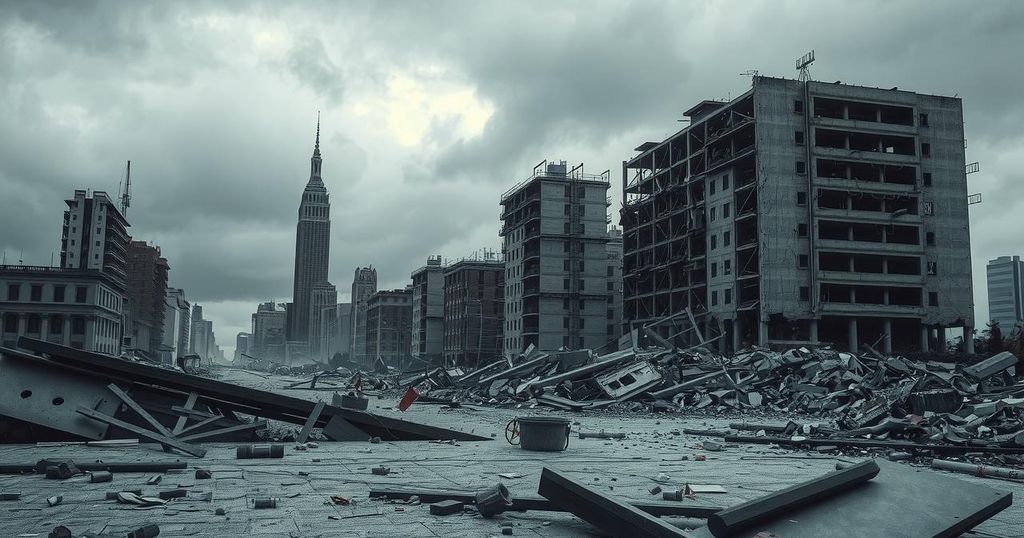Myanmar Earthquake: Death Toll Expected to Exceed 3,000 Amid Humanitarian Crisis
Rescue efforts in Myanmar following a 7.7 magnitude earthquake have resulted in over 2,000 deaths, with projections that the toll could surpass 3,000. The situation is compounded by a lack of essential resources and ongoing civil unrest. International aid is beginning to arrive, but concerns exist regarding potential military obstruction of humanitarian assistance.
On April 1, 2025, rescue efforts in Myanmar continued following a devastating 7.7 magnitude earthquake that has led to over 2,000 confirmed deaths and anticipation that the toll may exceed 3,000, as reported by General Min Aung Hlaing. The United Nations has alerted that the urgency for rescue is paramount, with the rescue window for survivors rapidly closing. Clean water, food, medical supplies, and electricity are scarce, compounding the existing humanitarian crises caused by ongoing civil conflict.
The World Health Organization has highlighted that over 10,000 structures were either destroyed or severely compromised, affecting not only Myanmar but also parts of neighboring Thailand. In Bangkok, a construction accident related to the earthquake resulted in 20 fatalities and numerous injuries, prompting an investigation into potential safety oversight and building regulations.
In Myanmar, the fire department managed to rescue a 63-year-old woman from the debris 91 hours post-quake, although the likelihood of finding additional survivors is diminishing. According to official reports, extensive death tolls and lack of resources are escalating concerns, with numerous individuals still unaccounted for, including many Buddhist monks who died during a religious examination.
International support has begun to trickle in, yet aid has been impeded by infrastructural challenges. Successful rescues have been reported, including the recovery of trapped victims from the rubble by various teams, including those from China and other countries. However, urgent issues such as clean water shortages raise the risk of disease outbreaks, necessitating immediate humanitarian intervention for those affected.
The civil unrest and ongoing military conflict prior to the earthquake had already displaced over 3 million people and left 20 million in need of assistance. Despite the military’s acceptance of foreign aid, concerns persist regarding potential obstruction of humanitarian delivery. The National Unity Government, representing ousted lawmakers, has called for direct aid to the victims and emphasized the critical need for timely assistance to prevent further loss of life amid ongoing violence.
Authorities face the challenge of managing a complex humanitarian situation, where military actions could hinder relief efforts. Human rights advocates urge the cessation of hostilities to prioritize the health and safety of affected civilians. The military’s future actions concerning humanitarian access remain to be seen as the nation grapples with catastrophic impacts from this natural disaster.
In conclusion, the situation in Myanmar post-earthquake reflects an urgent humanitarian crisis exacerbated by prior civil unrest. The rising death toll, along with the dire need for essential resources such as clean water and medical aid, underscores the necessity for coordinated international assistance. As rescue efforts continue, the call for swift humanitarian access remains critical, amidst concerns regarding military involvement in relief operations. Immediate action is required to mitigate the effects of both the earthquake and the ongoing civil conflict.
Original Source: www.news9.com




Post Comment